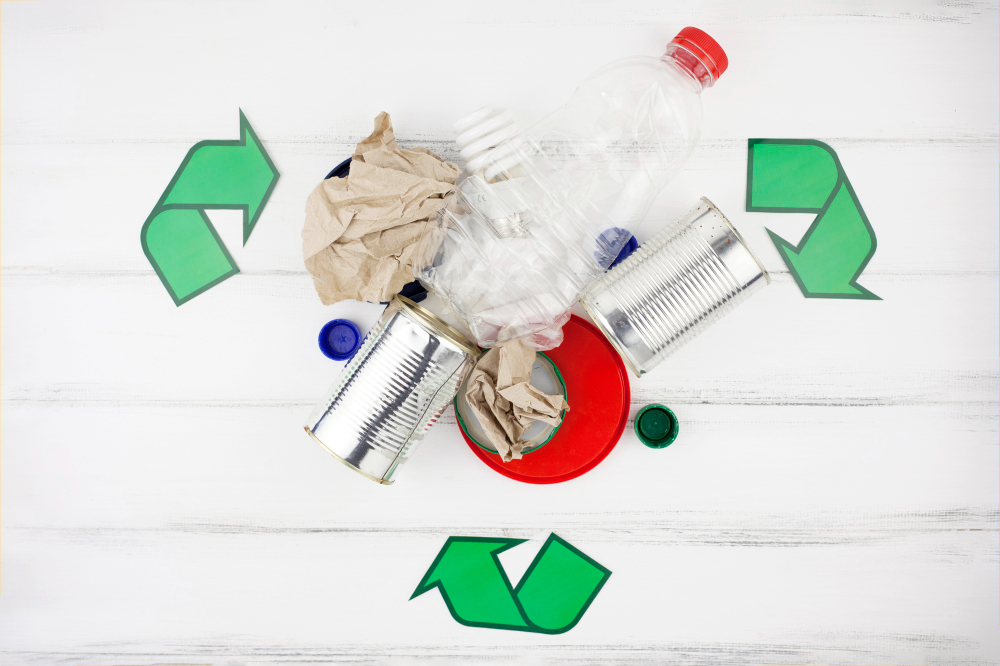In a world grappling with mounting environmental challenges, the three Rs—Reduce, Reuse, Recycle—have emerged as guiding principles for sustainable living. This triumvirate of actions offers a roadmap towards curbing waste, conserving resources, and mitigating the ecological impact of human activity. From individual households to global industries, the importance of reducing waste, reusing materials, and recycling resources cannot be overstated. In this exploration, we delve into the significance of the three Rs in environmental conservation, uncover their far-reaching implications, and celebrate their transformative power in shaping a more sustainable and prosperous future.
The Power of Reduce
At the heart of the Reduce principle lies a fundamental shift in our approach to consumption. By consciously opting for fewer goods, we alleviate the strain on finite resources and reduce waste production. From embracing minimalism to choosing products with eco-friendly packaging, reducing our consumption aligns with the ethos of sustainability. It signifies a departure from the throwaway culture that has characterized modern society.
The Value of Reuse
Reusing materials is a testament to human ingenuity—a creative endeavor that transforms discarded items into valuable assets. From repurposing glass jars as storage containers to refurbishing furniture, reusing extends the lifespan of products, conserves energy, and minimizes the demand for new resources. This approach bridges the gap between waste and wealth, celebrating the inherent value of materials that might otherwise end up in landfills.
Embracing Recycling
Recycling is the backbone of the circular economy—a regenerative system that champions the perpetual reuse of materials. From aluminum cans to plastic bottles, recycling diverts waste from landfills and reduces the need for virgin resources. Moreover, recycling has a cascading effect, leading to energy savings, reduced greenhouse gas emissions, and created green jobs. This harmonious cycle exemplifies the symbiotic relationship between environmental conservation and economic growth.
A Case for the Three Rs
Plastic pollution has emerged as a global crisis, infiltrating ecosystems and posing threats to marine life and human health. The three Rs offer a potent solution to this predicament. By reducing single-use plastic consumption, reusing plastic items, and recycling plastic waste, we can collectively combat the plastic plague and pave the way towards cleaner oceans and a healthier planet.
The Business Case for Sustainability
The three Rs aren’t limited to individual actions—they extend to industries and businesses seeking sustainable practices. Embracing the principles of reduce, reuse, and recycle enhances corporate social responsibility and yields economic benefits. From reducing production costs to minimizing waste disposal expenses, the business case for the three Rs underscores that sustainability is not a sacrifice but an investment in long-term prosperity.
Fostering Awareness and Action
Education plays a pivotal role in harnessing the potential of the three Rs. Raising awareness about the environmental impact of waste, showcasing the benefits of reusing materials, and promoting recycling initiatives empower individuals and communities to take proactive steps towards a greener lifestyle. Education ignites a ripple effect, inspiring collective action that reverberates through generations.
Catalyzing Change Through Regulation
Governmental support and policy play a crucial role in advancing the three Rs. Legislation that encourages recycling, incentivizes sustainable production practices, and imposes waste reduction targets creates a conducive environment for businesses and individuals to prioritize environmental conservation. The intersection of policy and personal choices amplifies the impact of the three Rs on a grand scale.
Envisioning a World of Balance
Imagine a world where landfills are minimized, oceans are free of plastic debris, and resources are cherished rather than squandered. This is the vision that the three Rs illuminate—a future where waste is transformed into wealth, conservation is a cornerstone of societal values, and human progress harmonizes with the rhythms of the natural world.
Crafting a Legacy of Sustainability
The three Rs are not just principles—they are a philosophy, a mindset, and a promise to future generations. From waste to wealth, they embody the capacity of human innovation to shape a world where abundance coexists with responsibility. As we embrace the journey towards reducing waste, reusing materials, and recycling resources, we craft a legacy of sustainability, leaving behind a planet that thrives on the power of mindful choices and a harmonious relationship between humanity and nature.



